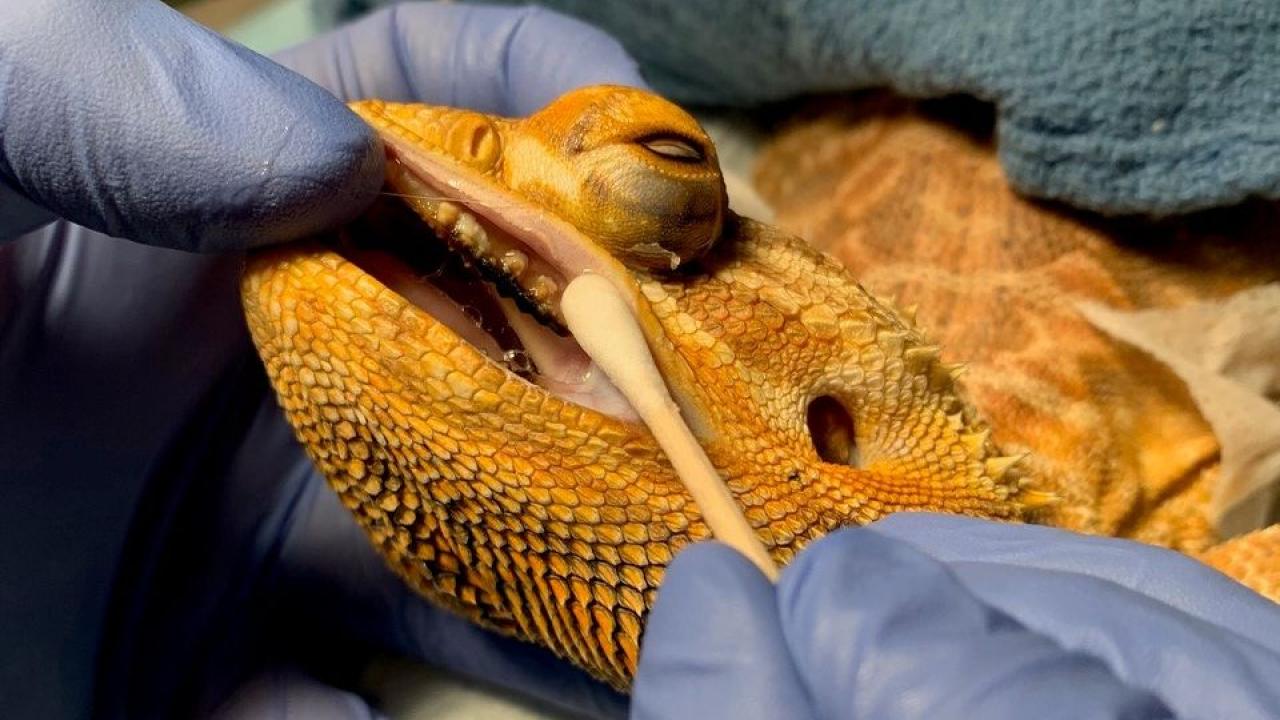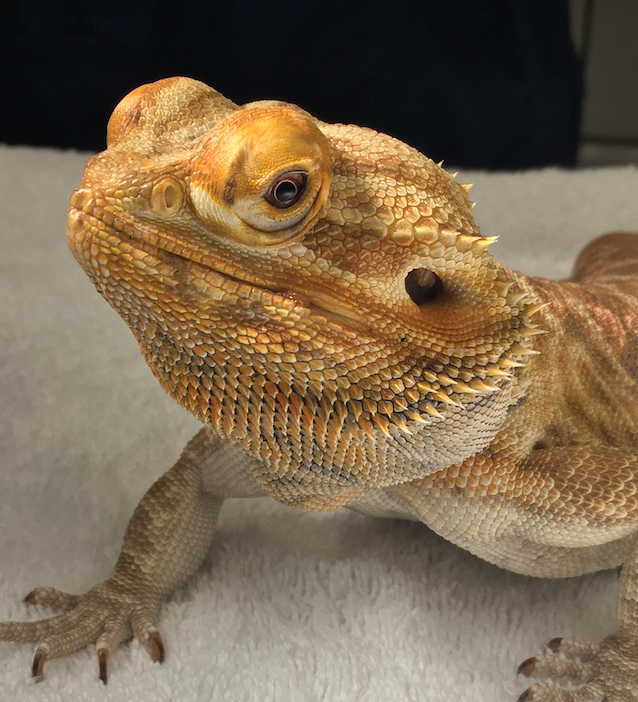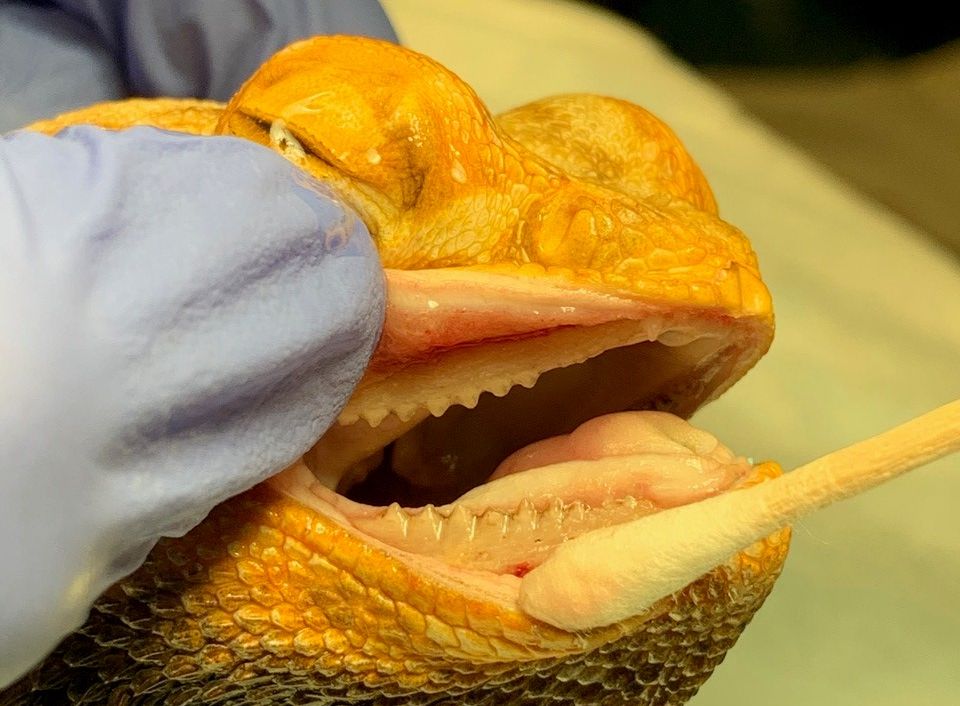
Bearded Dragon’s Oral Diseases Treated
“Case of the Month” – March 2020
Rex, a 5-year-old male bearded dragon, was brought to the UC Davis veterinary hospital following a period of inappetence, lethargy, and dehydration. His mouth appeared very unhealthy, and his owners were concerned that it was the primary cause of his lack of desire to eat and drink. They hoped that the veterinarians in the Companion Exotic Animal Medicine and Surgery Service could help.

Upon initial examination, Rex showed signs of severe stomatitis (inflammation inside the mouth), gingival recession (receded gum line), and a large amount of calculus buildup. Rex’s oral condition was also causing bone exposure on both his bottom and top jaws due to the severe gingival recession. He required a dental cleaning to remove the severe calculus buildup around his darkly discolored teeth. Rex had other clinical signs of not feeling well, and a diagnostic workup—including blood work, radiographs, and an echocardiogram (ultrasound of the heart)—was performed to further evaluate his oral disease and overall health. Rex was treated with supportive care and prescribed antibiotics and anti-inflammatories to help control the infection in the oral cavity and pain for several weeks. Recommendations were made to adjust his husbandry at home to improve his health.
Following two months of supportive care and adjustment to Rex’s husbandry at home, his stomatitis improved and his appetite returned. At this point, he was a healthier lizard and was a better candidate for the dental procedure under general anesthesia for removal of the calculus buildup on his teeth and exposed bone.

With assistance from the hospital’s team of registered veterinary technicians who are specially trained in exotic animal medicine and surgery, Rex was placed under general anesthesia and was closely monitored throughout the procedure. This allowed faculty member Dr. David Guzman and resident Dr. Paula Rodriguez to perform a procedure using an ultrasonic dental scaler, which emits high vibrational energy to blast calculus from teeth. This specialized piece of equipment is often used to clean teeth in many other species, including humans. Thankfully, there were no noted areas of dead bone on the dental arcades. Rex recovered well from anesthesia, woke up to a new, pristine white smile, and was able to go home that day.
Lizards like bearded dragons are predisposed to periodontal disease that can progress into severe calculus buildup, gingivitis (inflammation of the gum line), gingival recession, and even deep bone infections. The cause of this is suspected to be related to the diet, particularly in lizards like Rex with an acrodont dentition (teeth with have no roots or pockets and are fused to the jaw bones). Lizards like Rex, need to be managed for the remainder of their lives in order to maintain proper oral health. The long-term management involves oral exams every few months, brushing the teeth with a specialized formula and technique, as well as possible follow-up care with dental radiographs and cleanings. The UC Davis Companion Exotic Animal Medicine and Surgery Service encourages all exotic pet owners to discuss oral health with their veterinarians during their annual checkups in order to prevent or manage oral disease.
# # #
